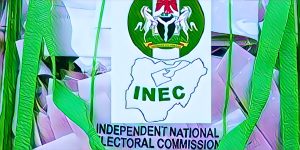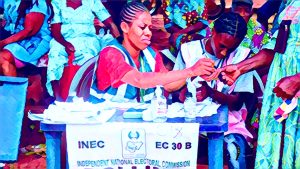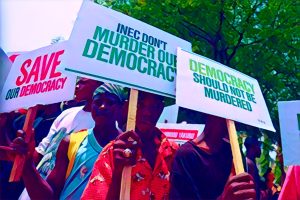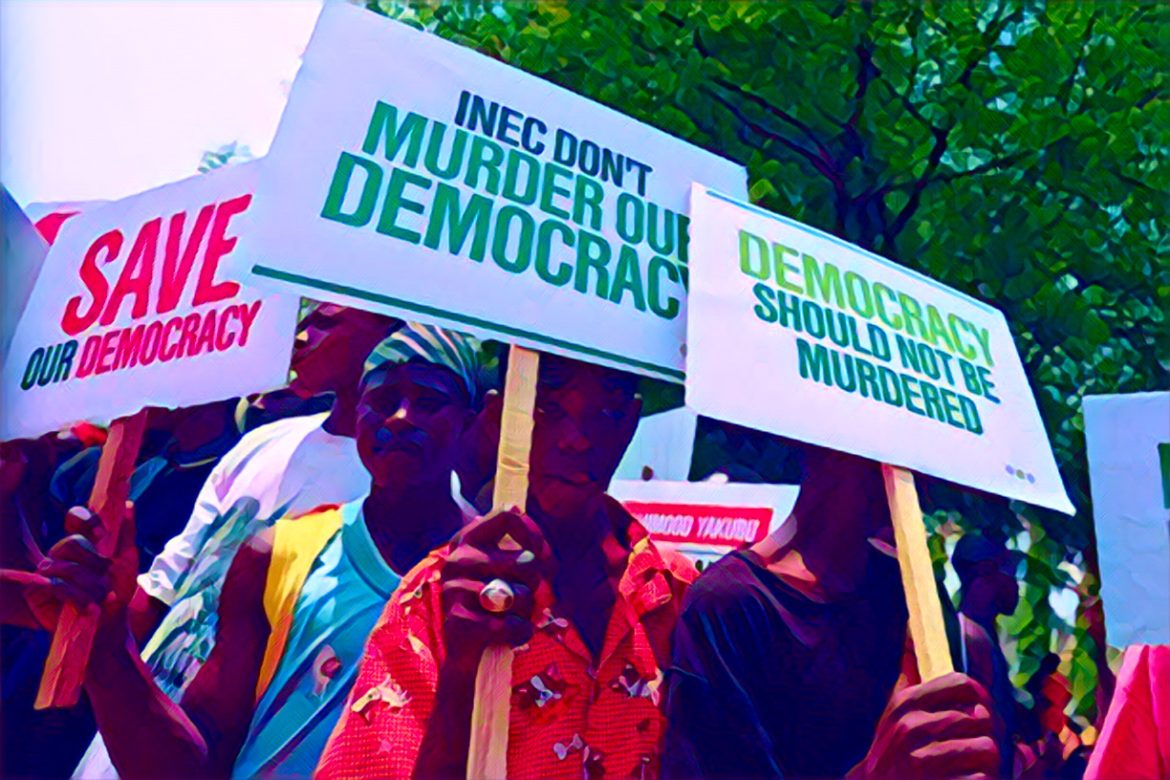KEY POINTS
- Electoral reforms, including updated laws and strict penalties, are vital to addressing malpractices and enhancing fairness in Nigeria’s democratic process.
- INEC’s independence and technology adoption, such as biometric registration, are essential to ensuring free and credible elections.
- Voter education campaigns and stakeholder collaboration can empower citizens, combat apathy, and foster inclusivity in Nigeria’s electoral system.
Nigeria’s journey toward achieving electoral integrity is both a challenging and critical endeavor.
Despite significant progress in recent years, the country continues to grapple with issues such as electoral malfeasance, violence, and low voter turnout (African Journals, 2024).

Nigeria’s recent 2023 presidential election and the tribunal’s decision are pivotal.
Addressing these challenges requires a multifaceted approach, one that emphasizes reforms, education, security, and stakeholder collaboration.
Let’s explore key areas that need focus and offer practical solutions to enhance Nigeria’s electoral integrity.
Electoral reforms: A catalyst for integrity
Electoral reforms are fundamental to ensuring the credibility of Nigeria’s elections. At the heart of this effort lies the review and update of electoral laws to align with global best practices (INEC, 2019).
The Electoral Act Amendment Bill is a step in the right direction, providing a framework to address issues like vote-buying, ballot-box snatching, and result manipulation (EEAS, 2022).
The need for an improved legal structure cannot be overstated. Clear laws on campaign financing, transparent processes for political party primaries, and stringent penalties for electoral offenses are critical.
For example, enforcing caps on campaign spending could reduce the influence of money in politics, leveling the playing field for all candidates.
Moreover, continuous voter registration processes must be prioritized. Accessible registration centers, especially in rural and underserved areas, ensure that eligible voters are not disenfranchised (INEC, 2010).
The Independent National Electoral Commission (INEC) has a vital role in ensuring that these reforms are effectively implemented, creating a reliable electoral process that gains the trust of the Nigerian populace.
The Independent Electoral Commission(INEC): Guardians of fair Elections
The independence and impartiality of electoral commissions are cornerstones of democratic elections. In Nigeria, INEC’s autonomy must be preserved and strengthened. To achieve this, its funding should be insulated from political interference, and its staff should be selected based on merit and integrity.

The Independent Electoral Commission (INEC)
INEC’s performance in the 2015 general elections serves as a testament to the potential of an independent commission (INEC, 2015).
During those elections, innovative measures like the use of Permanent Voter Cards (PVCs) and Smart Card Readers significantly reduced electoral fraud.

INEC inspecting the 5,000 BVAS, 18,000 Ad-Hoc Staff for Edo Governorship Election
However, subsequent elections have exposed gaps that need addressing. Enhanced training for electoral officials, stringent monitoring mechanisms, and better logistics are imperative to avoid setbacks witnessed in the past (INEC Manual for Elections, 2023).
A robust and impartial INEC is not just a necessity but a non-negotiable requirement for ensuring free, fair and credible elections. Its success hinges on continuous engagement with stakeholders, including political parties, civil society, and international observers (INEC, 2019).
Voter education and awareness: Empowering the electorate
An informed electorate is the backbone of a functional democracy. In Nigeria, voter education and awareness campaigns are crucial to increasing participation and reducing electoral malpractice (USAID).
Many citizens remain unaware of their rights and the importance of their votes, leading to apathy and low turnout.

Campaigns should demystify the electoral process, emphasizing the power of the vote and the consequences of abstention.
Government agencies, non-governmental organizations, and the media must collaborate to deliver targeted voter education programs.
These initiatives should focus on rural areas, where access to information is limited, and on youth, who constitute a significant portion of the electorate. Campaigns should demystify the electoral process, emphasizing the power of the vote and the consequences of abstention (UNDP).
For example, initiatives like the “Not-Too-Young-To-Run” movement have successfully mobilized young people to engage in politics.
Expanding such programs can inspire broader participation. Additionally, leveraging digital platforms to disseminate information and combat misinformation can enhance voter awareness and trust.
Electoral violence and security: A call for action
Electoral violence remains a major deterrent to voter participation and a blemish on Nigeria’s democratic credentials. From intimidation at polling stations to violent clashes between political supporters, these incidents undermine public confidence in the electoral process.
Ensuring adequate security during elections is paramount. Security agencies must adopt a non-partisan stance and work collaboratively with INEC to protect voters, officials, and materials.

Nigeria’s Path Towards Electoral Integrity
Community policing strategies, intelligence-driven operations, and the deployment of technology such as surveillance drones can enhance security measures.
Preventing violence also requires addressing the root causes, including political intolerance, youth unemployment, and the proliferation of small arms (UNDP).
Engaging youth in constructive political discourse and providing economic opportunities can help reduce their vulnerability to exploitation by political actors.
The importance of electoral integrity
Electoral integrity is fundamental to democracy. It ensures that the will of the people is accurately reflected in election outcomes, fostering trust in government institutions. In Nigeria, achieving this integrity demands commitment from all stakeholders (INEC, 2019).
The 2015 general elections demonstrated the impact of credible elections on national stability. International observers lauded the process, citing transparency and reduced malpractices. Replicating and improving on such successes can help Nigeria solidify its democratic gains.
The role of technology in electoral integrity
Technology offers transformative potential in strengthening electoral integrity. Biometric voter registration and electronic voting systems are game-changers in addressing issues like multiple voting and identity fraud.
For instance, the use of PVCs in Nigeria has significantly curtailed electoral malpractice, although challenges like device malfunctions persist.
Expanding technological adoption requires substantial investment and training. INEC must ensure that all election officials are proficient in using these tools and that contingency plans are in place to address technical glitches. Furthermore, public awareness campaigns about the benefits of technology can build trust and encourage acceptance.
Stakeholder engagement: A collective responsibility

Civil society organizations in Nigeria play a vital role in advocating for rights, promoting electoral reforms, and ensuring government accountability.
Electoral integrity is not the sole responsibility of INEC; it requires active participation from all stakeholders. Political parties must uphold internal democracy and discourage actions that compromise the process.
Civil society organizations should continue their advocacy for transparency and accountability, while the media must remain impartial and focus on fact-based reporting.
International partners also play a supportive role by providing technical assistance, funding, and monitoring elections. These efforts, combined with domestic initiatives, can create a robust framework for electoral integrity.
Opportunities ahead
Nigeria’s electoral reform process offers a unique opportunity to address long-standing challenges.
By incorporating lessons from past elections and leveraging advancements in technology, the country can build a resilient electoral system.
Efforts to increase voter participation, particularly among marginalized groups, can ensure that elections truly represent the will of the people.
With sustained commitment, Nigeria can transform its electoral landscape, setting an example for other nations in Africa and beyond. By prioritizing integrity, inclusivity, and security, the country’s democratic aspirations can be fully realized.



